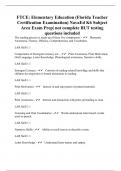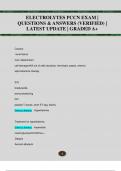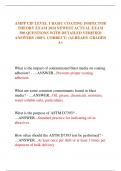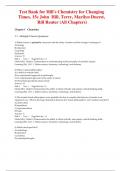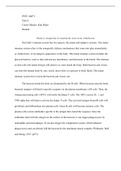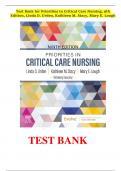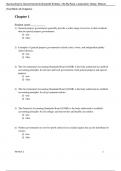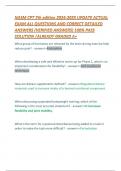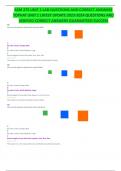Exam (elaborations)
FTCE: Elementary Education (Florida Teacher Certification Examination) NavaEd K6 Subject Area Exam Prep| not complete BUT testing questions included
- Course
- Institution
The reading process is made up of these five components: - Phonemic Awareness, Fluency, Phonics, Comprehension, and Vocabulary. LAR Skill 1.1 Components of Emergent Literacy are: - Print Awareness, Print Motivation, Oral Language, Letter Knowledge, Phonological awareness, Narrative skil...
[Show more]
